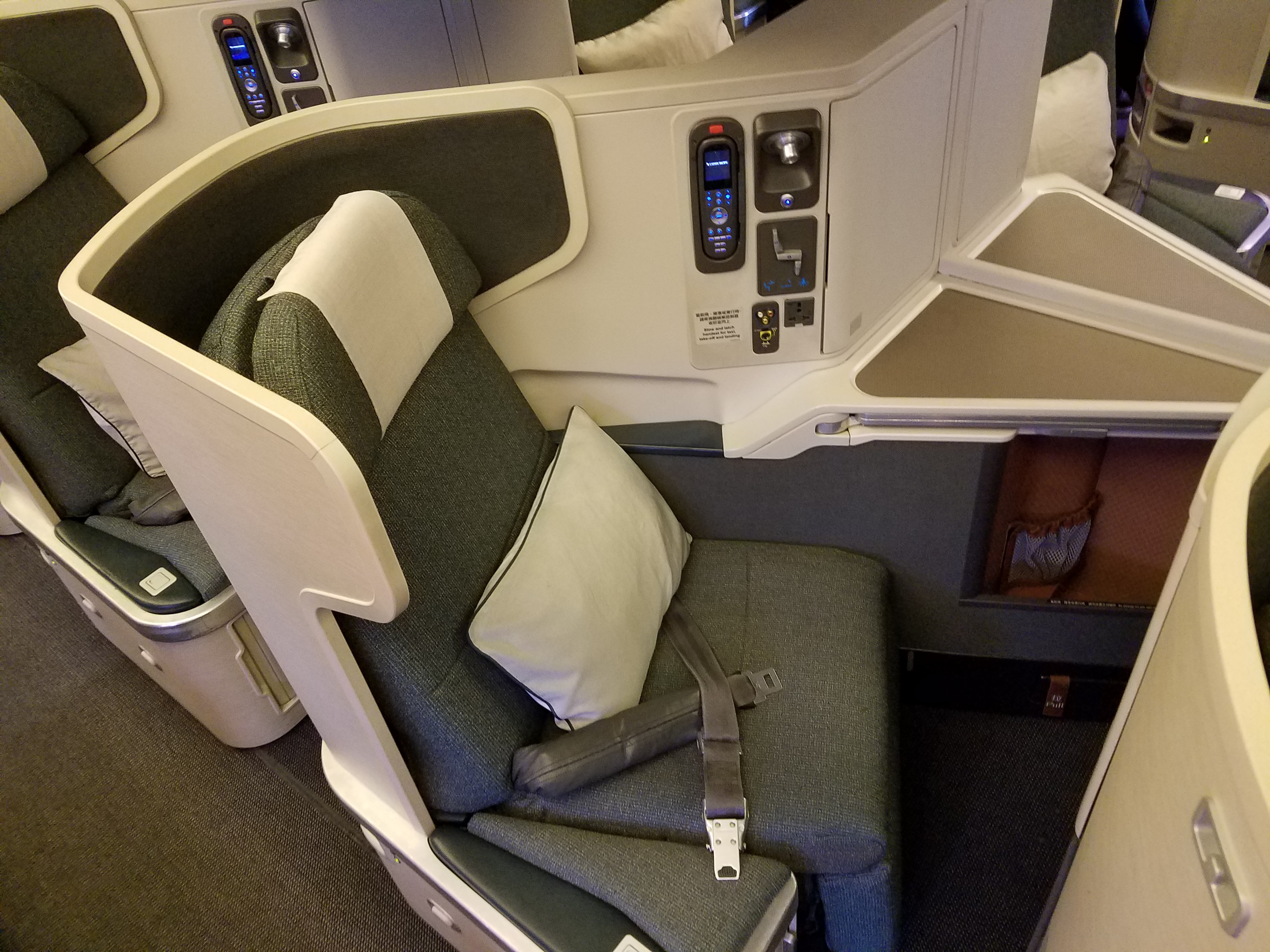United CEO Jeff Smisek was ousted in September 2015 with a $37 million golden parachute after he reportedly agreed to pay off a politician in exchange for favorable action from the Port Authority of New York New Jersey which oversees their Newark airport hub.

He led Continental’s takeover of United, and many frequent flyers believe he destroyed both airlines in the process. So much for ‘changes you’re going to like’.
And yet it turns out he may have done as much as anyone to preserve the Cathay Pacific brand. At a dinner with Cathay’s CEO he advised against Cathay starting its own low cost carrier and apparently the Chief Executive took the advice to heart, crediting it as the reason they didn’t move forward.
Cathay Pacific Airways’ decision to hold off on launching a low-cost carrier was influenced by an executive who was forced out of United Airlines, the Hong Kong carrier’s chairman has revealed.
In a surprising revelation, John Slosar said that part of the reason he has been dead set against launching a budget airline came from a dinner he had “a few years ago” with Jeff Smisek, the former United Airlines chief executive who resigned in 2015 after a major corruption scandal.
“The most important thing he said was, ultimately the idea that you could have a separate [budget] airline … and your main brand doesn’t compete turns out to be a false assumption,” Slosar told students at Polytechnic University in a speech last week.

Cathay Pacific Business Class
United had Ted (and Shuttle by United). Delta had Song. US Airways had MetroJet. Although the same McKinsey consultants shopped the idea as the crucial strategic move to survive the early part of the last decade none of those efforts survived.
Of course United and American are no stranger to destroying their premium brand through efforts like basic economy, and United, Delta and American through charging ancillary fees for what they maintain is a premium product, without the need for a separate airline-within-an-airline in order to do so.
However Cathay took the lesson that you cannibalize your premium business with your own low cost carrier, and they avoided that move.


LOL. Why start a budget airline when you can just run your “premium” brand into the ground. Much cheaper that way. Doesn’t Cathay already have a semi-budget airline, DragonAir?
Seriously though, the economics of airlines are different in Asia vs in US. Different geography, more high-traffic but short distance routes.
proper differentiation and delineation could allow both a low-cost spin-off *and* a premium parent airline to co-exist, with Qantas/jetStar and SQ/Scoot being prime examples
@rick b
DragonAir has been rebranded as “Cathay Dragon”. It’s more of a regional arm than a semi-budget airline. Cathay Dragon has some A330’s, and it’s really hard to tell the difference between theirs and a CX A330. There really aren’t that many routes where you can choose between CX and Cathay Dragon; and presumably, where there is a choice, it would be because Cathay Dragon operates narrow bodies whereas CX doesn’t.
It is true that CX is moving some former intra-Asia mainline routes over to Cathay Dragon, KUL being one of the bigger ones.
@henry LAX
Yeah, that’s the trick, and something the US airlines haven’t mastered. In the US, where domestic F is basically “big front seat” and a very large percentage of passengers are free upgrades, they haven’t made the domestic product worth paying for. Calling oneself a “premium airline” and actually *being* a “premium airline” are two very different things. It takes more than slick marketing to pull that off.
I’m at a point both physically and financially where I will consider getting out of “Basic Economy”. But the airlines have to actually provide value for me to do it.
“Although the same McKinsey consultants shopped the idea as the crucial strategic move to survive the early part of the last decade …”
@Gary: Evidence please.
“Of course United and American are no stranger to destroying their premium brand through efforts like basic economy, and United, Delta and American through charging ancillary fees for what they maintain is a premium product, without the need for a separate airline-within-an-airline in order to do so.”
They are going Ryanair because that is what consumers want. 90% of travelers go with the cheapest ticket on flights < 3hrs scheduled duration. You need to understand that 'Ryanair is the end-state'. Look at Europe.
@andrew back in 2003 mckinsey was being paid $1mm/month by both delta and united, this was part of their recommendations to both airlines [i wrote about this back at the time in fact].
Slimey Smisek
Don’t forget Continental Lite.